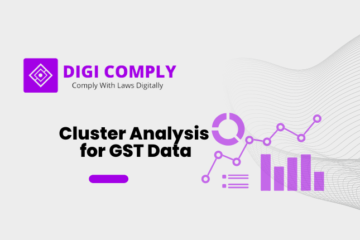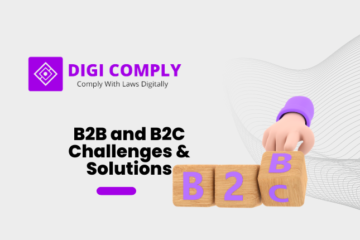In India, the introduction of the Invoice Registration Portal (IRP) and the e-invoicing system has transformed the way businesses handle their invoicing processes. The government’s initiative aims to enhance tax compliance, minimize tax evasion, and streamline the overall invoicing ecosystem. To achieve these goals, it is crucial to explore how Invoice Reference Numbers can be seamlessly integrated with existing accounting software systems. In this blog post, we will delve into the benefits, challenges, and key considerations of integrating IRN with accounting software.
Benefits of IRN Integration:
1. Simplified Invoicing Process: IRN integration automates the generation and validation of e-invoices, eliminating manual errors and reducing the time and effort required for invoice processing.
2. Improved Compliance: By integrating IRN with accounting software, businesses can ensure adherence to the e-invoicing regulations mandated by the Goods and Services Tax Network (GSTN) in India. This reduces the risk of non-compliance and associated penalties.
3. Enhanced Data Accuracy: IRN integration facilitates real-time validation of invoice data against the information available in the government’s central database, ensuring accurate and consistent invoicing details.
4. Efficient Tax Reconciliation: Seamless integration enables automatic reconciliation of e-invoices with GST returns, simplifying the tax filing process and reducing discrepancies between invoices and returns.
5. Cost and Time Savings: By eliminating manual data entry and validation processes, IRN integration significantly reduces the administrative burden and frees up valuable resources for businesses to focus on core activities.
Challenges of IRN Integration:
1. System Compatibility: Ensuring compatibility between existing accounting software and the IRN infrastructure may require custom development or seeking software providers that offer built-in Invoice Reference Number integration capabilities.
2. Data Security and Confidentiality: Integrating with the IRP necessitates handling sensitive financial data. Businesses must prioritize robust security measures to protect data integrity and confidentiality.
3. Training and Adoption: Employees must be trained to adapt to the changes introduced by IRN integration. Familiarizing them with the new processes and functionalities will be critical to ensure a smooth transition.
4. Technical Support: In case of any technical issues or glitches, businesses must have access to reliable support channels to address them promptly and minimize disruptions to their operations.
Key Considerations for IRN Integration:
1. Research and Selection: Evaluate accounting software providers that offer IRN integration functionalities or consider engaging with developers who can customize existing systems to accommodate IRN requirements.
2. Scalability: Choose accounting software that can handle increasing volumes of e-invoices as your business grows and ensure it aligns with the scalability of the IRN infrastructure.
3. Compliance Updates: Stay updated with the evolving e-invoicing regulations in India to ensure ongoing compliance and make necessary adjustments to your integrated accounting software.
4. User-Friendliness: Prioritize user-friendly interfaces and intuitive workflows in your chosen accounting software to ease the learning curve for employees and minimize disruptions during implementation.
Scalability of IRN: Analyzing the suitability of IRN for businesses of different sizes and industries
The Invoice Reference Number (IRN) system has been introduced as a transformative measure in India to streamline invoicing processes and enhance tax compliance. While IRN has numerous benefits, it is crucial to analyze its scalability and suitability for businesses of different sizes and industries.
Scalability for Small and Medium-sized Enterprises (SMEs):
1. Streamlined Invoicing: IRN simplifies the invoicing process for SMEs by automating the generation and validation of e-invoices. This reduces the administrative burden and eliminates manual errors, enabling SMEs to focus on core business activities.
2. Cost Optimization: Integrating with IRN allows SMEs to reduce costs associated with manual invoicing, such as printing, postage, and storage. It also minimizes the risk of non-compliance and associated penalties, ensuring long-term cost savings.
3. Compliance Assistance: IRN integration ensures SMEs adhere to the Goods and Services Tax (GST) regulations, minimizing the risk of errors in tax reporting. This simplifies tax compliance and avoids potential penalties, supporting the growth and sustainability of SMEs.
Scalability for Large Enterprises:
1. High-volume Processing: Large enterprises generate a significant number of invoices daily. IRN enables seamless handling of high volumes of e-invoices, ensuring efficiency and scalability in invoice processing.
2. Integration Capabilities: IRN can be seamlessly integrated with existing accounting software systems used by large enterprises. This integration streamlines processes and facilitates automatic reconciliation, reducing manual effort and enhancing productivity.
3. Data Accuracy and Consistency: The real-time validation of e-invoice data against the central database ensures accurate invoicing details for large enterprises. This improves data consistency and minimizes discrepancies, leading to better financial reporting and decision-making.
Scalability for Different Industries:
1. Manufacturing and Distribution: IRN integration offers benefits such as automated invoice generation, accurate inventory tracking, and simplified tax reconciliation for manufacturers and distributors. It ensures seamless compliance with industry-specific tax regulations and improves supply chain management.
2. Retail and E-commerce: IRN enables retailers and e-commerce businesses to streamline their invoicing processes, manage high volumes of transactions, and ensure compliance with GST regulations. It facilitates smooth order fulfillment, reduces errors, and enhances customer satisfaction.
3. Service-based Industries: For service-oriented businesses such as consulting firms, IT service providers, and professional services, IRN integration ensures accurate invoicing, efficient project accounting, and hassle-free tax compliance. It helps streamline client billing processes and ensures timely revenue recognition.
Considerations for Scalability:
1. Scalable Accounting Software: Businesses should choose accounting software that can handle increasing volumes of e-invoices and align with the scalability of the IRN infrastructure.
2. IT Infrastructure: Evaluating the IT infrastructure’s capacity and capability to handle the integration with IRN is crucial. Adequate resources and robust network infrastructure are essential for seamless scalability.
3. Regulatory Compliance Updates: Staying abreast of evolving e-invoicing regulations in India is critical to ensure ongoing compliance and make necessary adjustments to accommodate scalability requirements.
Conclusion:
The scalability of the Invoice Reference Number system is crucial for businesses of all sizes and industries in India. Whether it’s SMEs aiming for cost optimization and streamlined invoicing or large enterprises handling high volumes of transactions, IRN provides benefits such as automation, improved compliance, and enhanced data accuracy. Additionally, different industries can leverage IRN integration to simplify their invoicing processes, improve tax reconciliation, and ensure industry-specific compliance. By considering the scalability factors and choosing the right.
If You have any queries then connect with us at support@legalsuvidha.com or info@digicomply.in & you can contact us & stay updated with our latest blogs & articles




